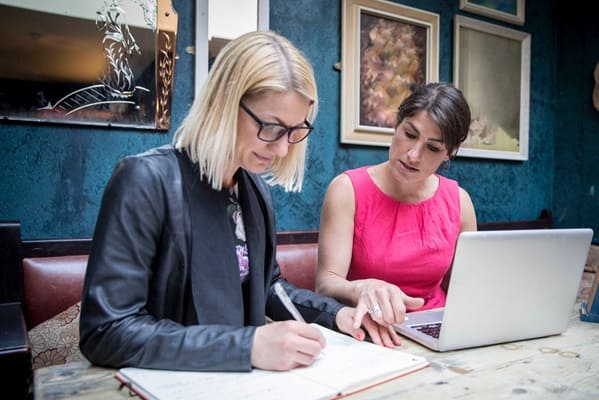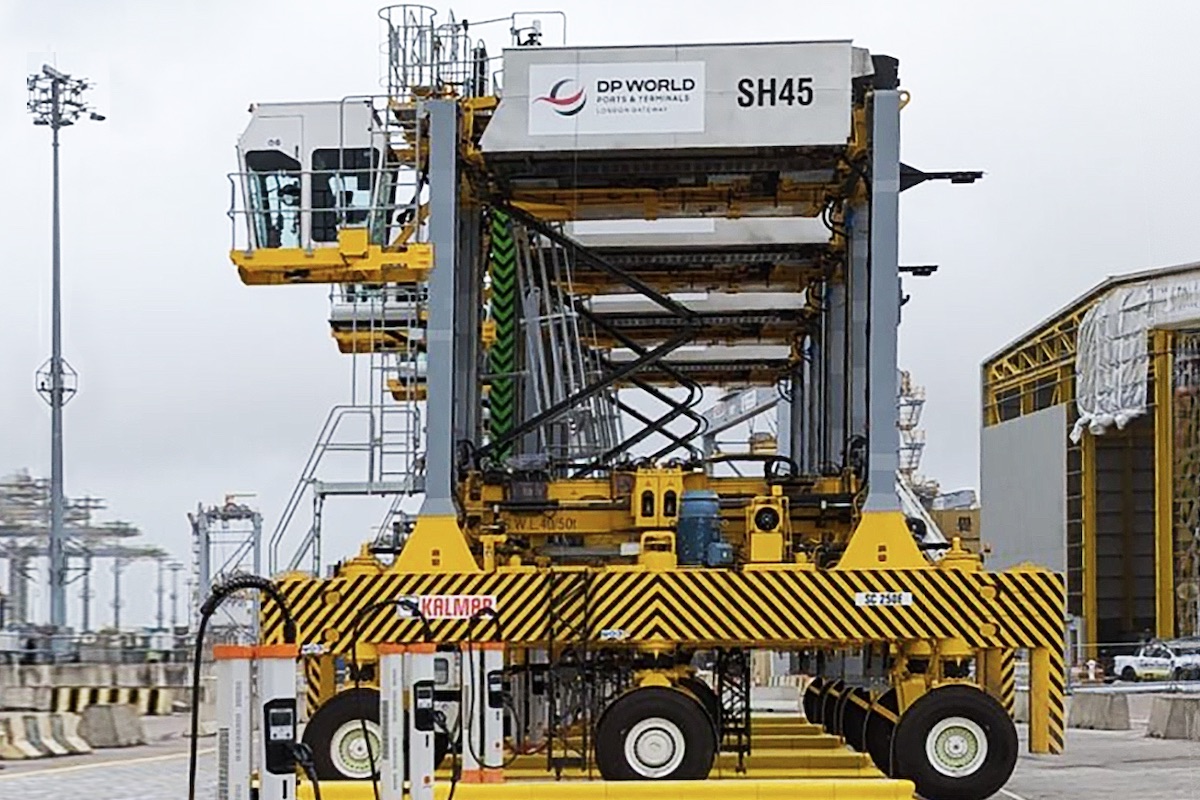Bussiness
Empowering women entrepreneurs vital to unlocking growth potential in the CEE region – London Business News | Londonlovesbusiness.com

Women entrepreneurs increasingly drive innovation, create jobs and foster diversity across the globe, with their unique perspectives proving vital in accelerating sustainable growth and gender equality. International trends reveal a dynamic and evolving landscape, with women stepping into entrepreneurial roles across diverse industries and regions, fuelled by improved access to education, connectivity and supportive policies. Yet, women worldwide continue to face a range of common barriers to starting and sustaining successful businesses. Access to capital and representation in high-growth sectors remain limited, while systemic gender biases and skills gaps amid accelerating AI uptake are making it harder for women-led businesses to compete.
Women’s gender-based challenges underpin enormous untapped potential: recent research shows that closing the corporate leadership gender gap in Central and Eastern Europe (CEE) could unlock as much as €146 billion in annual GDP – equivalent to the combined economies of Slovakia and Croatia.
On November 5, Zagreb played host to the “Women Entrepreneurs of the Danube Region” conference. Organised by Croatia’s and Baden-Württemberg’s respective economy ministries under the auspices of the EU Strategy for the Danube Region (EUSDR), the event’s packed agenda explored the challenges facing women running businesses in the region.
From navigating the shift toward digitised business models to fuelling the circular economy, discussions led by partner organisations from Austria, Bulgaria, Moldova and Hungary underscored the critical role of women-led enterprises in the rapidly-growing CEE economy, while showcasing successful regional initiatives to drive progress.
Gender barriers hindering progress
Despite their significant achievements and contributions, women-led businesses remain underrepresented. Only 25% of business founders in the region are women, while an overwhelming 94% of start-up investments go to companies led solely by men. This stark gender gap, visible across all sectors, underscores the need for systemic change. Moreover, cultural norms and societal expectations often hinder women’s entrepreneurial ambitions, exacerbating their unequal access to resources and digital skills training.
Insights from Emerging Europe’s recent report – a joint production with the She’s Next Empowered by Visa initiative – highlight these realities. According to the report, education also plays a critical role, with data showing that higher education levels significantly boost success rates for women entrepreneurs. Effective networking and mentorship is equally key for start-up success, yet many women founders are left out of male-dominated industry events. “Being part of the right community can make a huge difference for a first-time founder,” explains EIT collaborator Joana Pinto, underscoring the importance of conferences like the “Women Entrepreneurs of the Danube Region.”
As emphasised at the Zagreb-hosted event, the EUSDR is lighting the path forward, with the CEE region witnessing a growing wave of initiatives to address systemic barriers and create opportunities for women-led businesses to thrive.
Fibank’s “Smart Lady” initiative leading the way
Among the event’s high-profile private sector partners, Fibank, Bulgaria’s largest independent bank, has made a significant regional impact through its “Smart Lady” programme.
At her panel on ‘Financing possibilities for female entrepreneurship,’ Ilona Staneva, Fibank’s Director of Marketing and Advertising, presented the results of the Bulgarian bank’s gender equality initiative since its launch in 2018. With over 120 million BGN – roughly €62 million – granted to more than 1,100 women-led businesses, the “Smart Lady” initiative has combined ambitious financing with mentorship, training and networking opportunities, prioritising support in navigating Industry 4.0-based technology and sustainability shifts.
Building on its initial impact, the programme created the Sustainable Lady Fund in 2021 to support eco-conscious ventures in sectors such as aviation, social services and closed-loop eco-farming, with over 30% of Fibank’s “Small Enterprises” loans now devoted to sustainable companies. More recently, the 2024 iteration of Mentors BG’s National Mentorship Programme for Women Entrepreneurs, with “Smart Lady” backing, has been expanded to include a specialised “Sustainable Business” training module, empowering women-led businesses across the CEE region and beyond to integrate environmentally responsible practices.
At Fibank, Staneva asserts, “we pour a lot of heart and effort into our mission to provide financial and mentoring resources to all women with the ambition to start and grow their businesses,” in an environmentally and socially sustainable way, reflecting the corporate mission embedded by Fibank founders and majority owners, Tseko Minev and Ivaylo Mutafchiev.
EIT Health’s ‘HICEE’ driving regional change
Complementing the region’s private sector-driven initiatives, the EIT Health-led Healthy Investment Central and Eastern Europe (HICEE) project has seen the EU’s leading healthcare innovation organisation convene a wide network of domestic partner organisation to address the structural roots of the region’s venture capital gap, with a particular focus on gender-related disparities. By building early-stage investment ecosystems and fostering connections with local and international investors, HICEE aims to amplify the visibility and success of women entrepreneurs in healthcare and beyond.
According to EIT’s RIS Director, Monika Toth, “At EIT Health InnoStars, we take pride in highlighting numerous inspiring accounts from the CEE region, wherein women entrepreneurs are showcasing remarkable leadership in science and business,” stressing that with initiatives like the HICEE, “we are advancing towards dismantling” gender-based economic barriers. Levering its network of ten partner organisations from seven CEE countries, HICEE is tackling the gender-based investment gap head-on, with 129 of the 327 start-ups connected to the EIT ecosystem headed by women CEOs – a figure set to continue moving towards parity driven by new projects emerging across the region.
Following HICEE’s gender inclusion strategies, partner initiatives like the Ljubljana University Incubator (LUI) and Hungarian Business Angel Network (HunBAB) are making a vital impact at the local level. By 2023, 30% of LUI’s supported start-ups had women at the helm, while HuBan’s 2023 AngelFest conference spotlighted women-led start-ups with dedicated awards and ensured female representation in pitch sessions, setting the stage for a more equitable entrepreneurial ecosystem in the CEE.
Building on strong foundations
While the CEE economy has made important strides in gender inclusion thanks to ambitious women’s entrepreneurship initiatives such as those spearheaded by Fibank and EIT Health, much work lies ahead. Taking inspiration from the leaders of the region’s women entrepreneurship movement, new actors must now join the collective undertaking to break down lingering financial, educational and cultural barriers.
Looking ahead, the path to progress requires sustained investment and training efforts from governments, private sector and civil society stakeholders, paired with the networking, mentorship and community-building support embodied by events like the recent EUSDR conference in Zagreb. By ensuring equal access to ‘hard’ and ‘soft’ resources, the CEE start-up ecosystem can harness the full potential of its diverse talent pool, enabling women founders to contribute to a more innovative, sustainable and inclusive economy.








